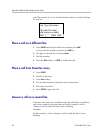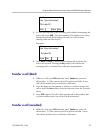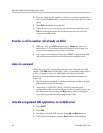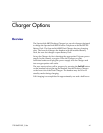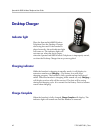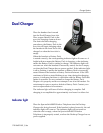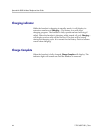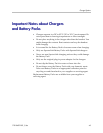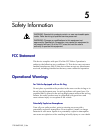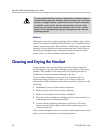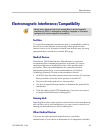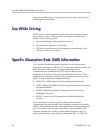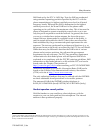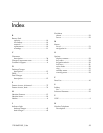
SpectraLink 8002 Wireless Telephone User Guide
50 1725-36027-001_C.doc
from external RF energy. Your physician may be able to assist you in
obtaining this information.
Use While Driving
Check the laws and regulations on the use of radio products in the
area where you drive. Always obey them. When using the radio
product while driving, please:
• Give full attention to driving and to the road.
• Use hands-free operation, if available.
• Pull off the road and park before making or answering a call if
driving conditions so require.
Specific Absorption Rate (SAR) Information
Your wireless handheld portable telephone is a low power radio
transmitter and receiver. When it is ON, it receives and also sends out
radio frequency (RF) signals. In August 1996, the Federal
Communications Commissions (FCC) adopted RF exposure
guidelines with safety levels for hand-held wireless phones. Those
guidelines are consistent with the safety standards previously set by
both U.S. and international standards bodies:
• ANSI C95.1 (1992) American National Standards Institute
• NCRP - Report 86 (1986) National Council on Radiation Protection
and Measurements
• ICNIRP (1996) International Commission on Non-Ionizing
Radiation Protection;
• DHWC - Safety Code 6 Department of Health and Welfare
Canada
Those standards were developed by independent scientific
organizations through periodic and thorough evaluation of scientific
studies. The standards include a substantial safety margin designed to
assure the safety of all persons, regardless of age and health. The
exposure standard for wireless mobile phones employs a unit of
measurement known as the Specific Absorption Rate, or SAR. The



